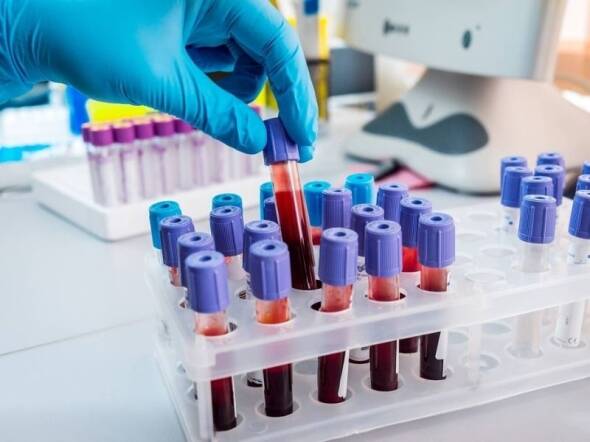Hormonal evaluation studies identify hormonal imbalances that may impair your fertility.
Hormones control every step in achieving pregnancy, from stimulating the development of an egg to ovulation and implantation of a fertilized egg in the uterus. Each hormone that plays a role in conception must be produced in a specific amount at a precise time in your menstrual cycle. Talk about all the stars that must align to get or stay pregnant! Hormonal studies measure the levels of certain hormones your body produces during your cycle. You will likely have a series of simple blood tests at various stages in your cycle. The tests your doctor orders may help determine your diagnosis and identify the best treatment options.
Hormones That Control Ovulation and Implantation of the Egg:
- Estradiol – stimulates the growth of the follicle and the production of fertile mucus from the cervix and prepares the uterine lining for the implantation of a fertilized egg
- Follicle-stimulating hormone (FSH) – stimulates the development of the egg
- Luteinizing hormone (LH) – stimulates the release of the egg from the follicle (ovulation)
- Progesterone – stabilizes the uterine lining for implantation of a fertilized egg and supports early pregnancy
Other Hormones That Can Interfere with Ovulation:
- Androgens—Women normally produce small amounts of androgens (testosterone and DHEAS: dehydroepiandrosterone sulfate); excess production may interfere with the development of the follicles, ovulation, and cervical mucus production.
- Prolactin – stimulates milk production; blood levels may be higher than normal in certain disorders or if you take certain medications.
- Thyroid – an under-active thyroid (hypothyroidism) can result in high prolactin levels
Additional Hormone Ovarian Reserve Testing:
- Anti-Mullerian Hormone (AMH) – a substance produced by granulosa cells in ovarian follicles. AMH blood levels are thought to reflect the size of the remaining egg supply.
Struggling to Conceive? This Guide Changes Everything
Discover the expert strategies to finally start your family—download your free guide by Dr. Marcy Maguire now!
Fertility Hormone Testing: Questions & Answers
Do I need to fast before I have my blood test?
Food does not usually affect your blood tests for hormonal studies, so it’s okay to eat. However, you may be told to fast before having a prolactin blood test. Be sure to speak to your nurse if you are unsure about eating before these tests.
Do these blood tests have to be done on certain days of my menstrual cycle?
Yes. Your hormone levels change throughout your cycle and must be measured at specific times to diagnose an imbalance. Your doctor or nurse will tell you exactly when to complete each test.
What is the normal level for each hormone?
The “normal” levels vary by laboratory, so you must discuss these values and your results with your doctor or nurse.
- Anti-Mullerian Hormone (AMH) levels
- Good levels = >1.2ng/mL
- Poor levels = <0.5 ng/mL
- Follical Stimulating Hormone (FSH) levels
- Good levels = <10 mlU/mL
- Poor levels = > 20mlU/mL
- Antral Follicle Count levels
- Good levels = >10
- Poor levels = <8
When will I get the results of the blood test?
Some test results are available on the same day; others may take up to one week.
Hormonal Imbalance: Causes and Symptoms
Hormonal imbalances can significantly impact your ability to conceive, but the symptoms are not always obvious.
Common signs of a hormonal imbalance that may affect fertility include
- irregular menstrual cycles
- heavy or light periods
- unexplained weight changes
- acne
- mood swings
Conditions such as Polycystic Ovary Syndrome (PCOS), thyroid disorders, and elevated prolactin levels are common causes of hormonal irregularities. Identifying these issues early through comprehensive hormonal testing can provide critical insights into the root causes of infertility and guide effective treatment plans.
Lifestyle factors can also influence your hormone levels. Stress, poor diet, lack of sleep, and certain medications may disrupt your body’s natural hormonal rhythms.
Working with your doctor to identify potential triggers or underlying health conditions is essential for restoring balance and improving your chances of conception.
Lifestyle Tips for Balancing Hormones and Boosting Fertility
While medical treatments are often necessary to address significant hormonal imbalances, simple lifestyle changes can support overall hormonal health.
A balanced diet rich in whole foods, healthy fats, and lean protein can help regulate hormones like insulin and estrogen. Regular exercise, such as yoga or light cardio, can also improve circulation and reduce stress, which are key factors in hormonal regulation.
Managing stress is especially important, as high cortisol levels can interfere with ovulation and reproductive health.
Consider mindfulness practices, such as meditation or deep breathing exercises, to help maintain a calm and balanced state. If you’re preparing for fertility testing, speak with your doctor about the best steps to optimize your hormone levels naturally and understand how your unique biology might affect your treatment options.

